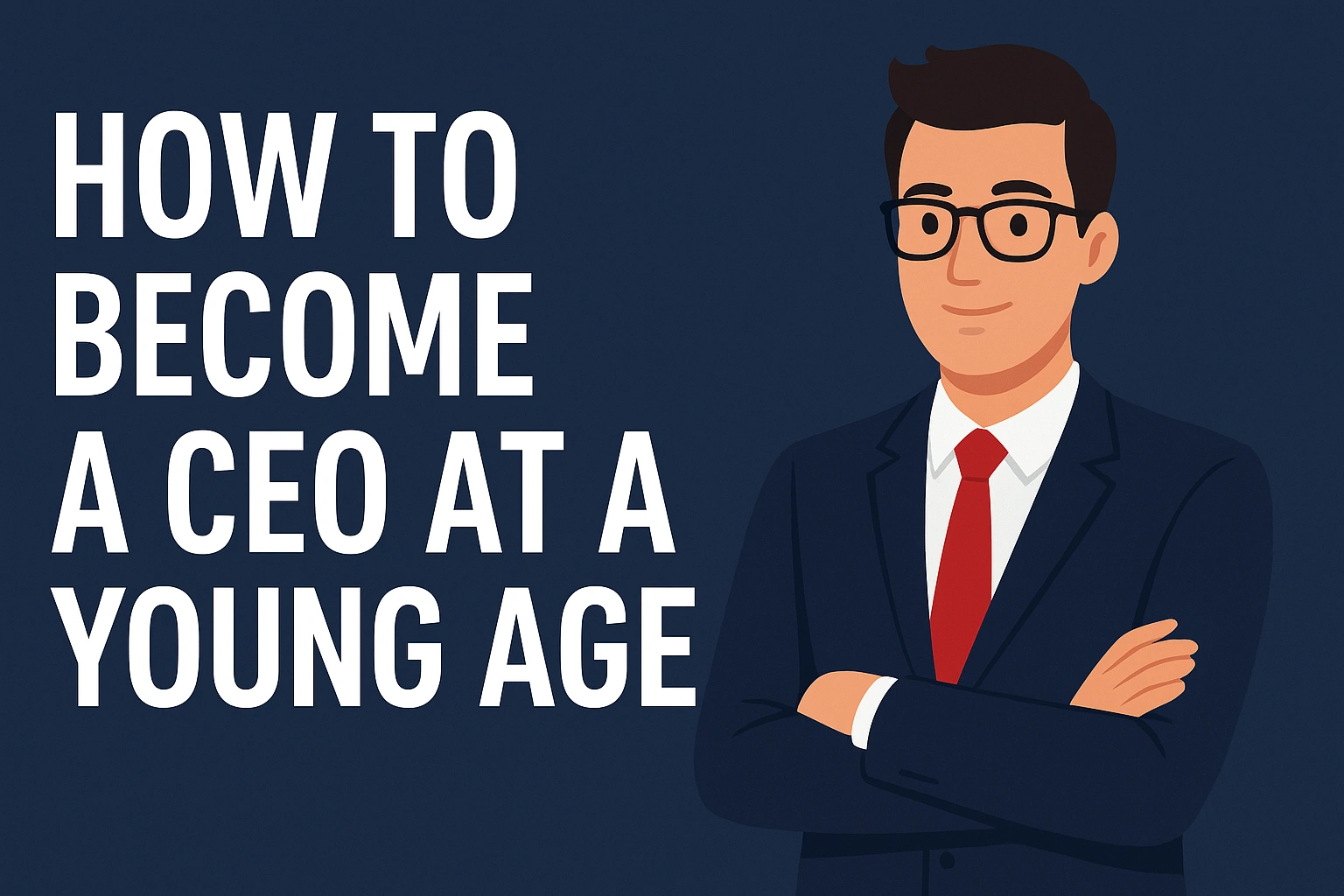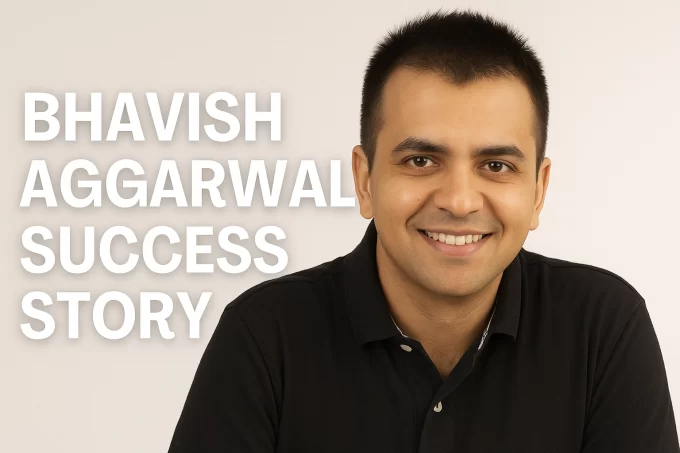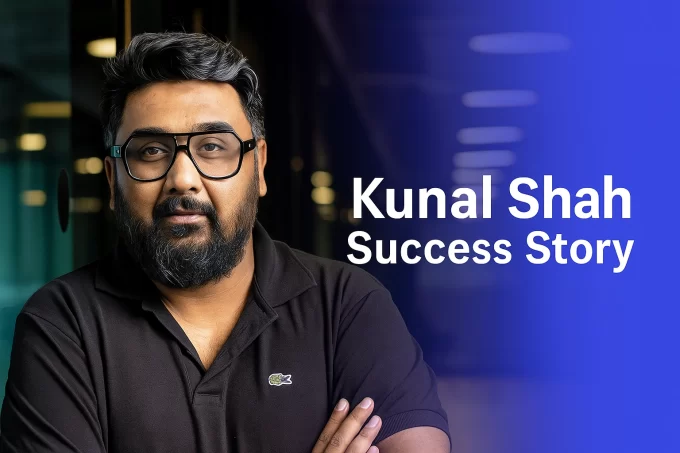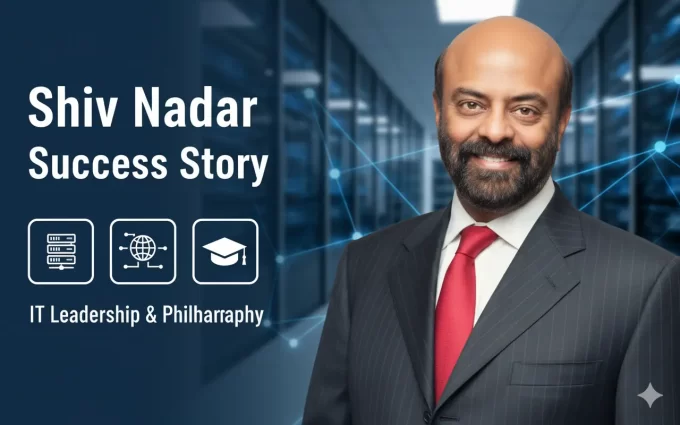Becoming a CEO at a young age might seem like a distant dream, but today it is very possible. With the rise of startups, technology, and access to mentors and funding, young people have more opportunities than ever to start and lead successful companies.
Becoming a CEO early is challenging, though. It requires careful planning, persistence, and constant learning. This guide explains how to become a young CEO with practical steps, real-life examples, and tips from successful leaders.
Why Young CEOs Can Succeed
The modern business world values results more than age. Technology allows anyone to reach customers globally, and social media helps young leaders present their ideas to investors and peers.
Young founders often bring fresh energy, adaptability, and bold thinking. Consider some examples:
- Suhas Gopinath (India): CEO of Globals Inc. at 17.
- Anubhav Wadhwa (India): Founder of TechAPTO at 13.
- Ritesh Agarwal: Founded OYO Rooms, becoming a billionaire in his early twenties.
- Mark Zuckerberg: Launched Facebook at 19.
Age is not a barrier when combined with vision, skills, and determination. Young leaders often excel in areas like technology, e-commerce, and digital services because they can experiment, iterate, and adapt faster than older competitors.
The Right Mindset
Becoming a CEO is not just about skills, experience, or knowledge. Your mindset plays a huge role in how successful you can be. A strong CEO mindset helps you stay focused, make better decisions, and inspire the people around you. Here are some key points to consider:
- Think Big, But Stay Realistic
CEOs need to have a vision for the future. You should dream big and aim high, but at the same time, stay realistic about what is possible. Setting achievable goals keeps you motivated and builds trust among your team. - Be Resilient
Challenges and failures are part of every CEO’s journey. Having resilience means you can face setbacks without giving up. Instead of seeing mistakes as failures, view them as learning opportunities. - Stay Curious
The world of business is always changing. A CEO who stays curious will keep learning about new trends, technologies, and ideas. This mindset helps you adapt quickly and make smart decisions. - Take Responsibility
CEOs are accountable for their company’s successes and failures. Developing a mindset that embraces responsibility will make you a stronger leader. People respect leaders who own their actions and decisions. - Focus on Solutions, Not Problems
Problems will always come up, but successful CEOs focus on finding solutions instead of dwelling on the difficulties. A positive, solution-oriented mindset inspires your team and keeps your company moving forward. - Lead by Example
Your mindset affects how your team behaves. If you are disciplined, positive, and committed, your team is likely to follow your lead. Leading by example creates a strong company culture and motivates everyone to do their best.
Developing the right mindset is a daily practice. Reading, learning from mentors, reflecting on your actions, and being open to feedback all help you shape the mindset of a strong CEO.
Skills You Need
Besides mindset, practical skills are essential:
- Emotional Intelligence: Helps you lead teams effectively.
- Financial Knowledge: Understanding cash flow, budgeting, and basic accounting is crucial.
- Decision-Making: Make informed and confident choices.
- Time Management: Focus on what matters most to achieve results.
- Networking and Communication: Build connections with mentors, investors, and peers.
- Personal Branding: Showcase credibility and your ideas.
The ability to learn continuously and adapt these skills in real situations separates young CEOs who succeed from those who struggle.
Steps to Become a Young CEO
1. Learn and Gain Knowledge
Choose a field you are passionate about, such as technology, health, finance, or sustainability. Read books, take online courses, attend workshops, and stay updated with industry trends. Knowledge will give you confidence to start a business and make informed decisions.
2. Get Real Experience
Experience teaches lessons books cannot. Internships, part-time work, volunteering, or small projects help you understand business operations and teamwork. Mentors and observing experienced leaders accelerate your learning. Even small ventures provide valuable lessons about customers, product development, and strategy.
3. Build Your Vision
Identify a problem you care about solving. Create a small version of your product or service and test it. Collect feedback, learn, and improve. Acting quickly, even without perfection, allows you to learn faster and stay ahead.
4. Build a Strong Team
A CEO cannot do everything alone. Hire people with skills that complement yours. Delegate operational tasks, focus on growth and strategy, and create a company culture of trust, purpose, and collaboration.
5. Scale and Improve
Track performance metrics like revenue, customer growth, and team output. Seek feedback from customers, mentors, and your team to refine your product and processes. Sharing your journey publicly helps establish credibility and attract partners and investors.
As your company grows, developing leadership skills like delegation, conflict resolution, and strategic planning becomes crucial. These skills ensure sustainable growth and long-term success.
Challenges Young CEOs Face
Being a young CEO comes with unique challenges:
- Age Bias: People may doubt your skills. Deliver results and seek guidance from mentors to gain credibility.
- Financial Risk: Start small, validate ideas, and avoid unnecessary spending.
- Lack of Experience: Learn quickly, rely on skilled team members, and embrace feedback.
- Burnout: Balance work and health, delegate effectively, and manage time wisely.
Overcoming these challenges often requires resilience, patience, and strategic thinking.
Lessons from Successful Young CEOs
Successful young CEOs share these traits:
- They start early and take initiative.
- They stay persistent, learning from mistakes.
- They build strong teams and networks.
- They seek mentorship for guidance and opportunities.
- They maintain a clear vision and focus on steady progress.
Resilience, adaptability, and the ability to inspire others are key to long-term leadership.
Sample Year-by-Year Plan
- 16–18 years: Focus on learning, side projects, internships, and networking.
- 18–20 years: Launch your venture, test ideas, hire initial team members.
- 20–22 years: Scale operations, refine your product, improve processes.
- 22+ years: Consolidate leadership, delegate effectively, and plan for growth, including external funding.
Realities to Keep in Mind
Not every startup succeeds. Age bias, financial challenges, and operational problems can occur. Burnout is a risk if you work too much without balance. Emotional intelligence, resilience, and strategic planning are essential to overcome these challenges.
Why It’s Worth Trying
Being a young CEO is rewarding:
- Fast Learning: Early ventures teach valuable lessons quickly.
- Long-Term Growth: More time to gain experience and influence industries.
- Influence: Ability to inspire peers and shape trends.
- Financial Rewards: Successful ventures can bring significant income.
- Legacy: Building a business early establishes credibility and reputation.
FAQ – (Frequently Asked Questions)
Q1. At what age can someone become a CEO?
Most young CEOs start in their late teens or early twenties. Skills and persistence matter more than age.
Q2. Do I need a college degree?
No. Many young CEOs succeed without formal education. Learning, execution, and vision are more important.
Q3. How important is work experience?
Experience helps, but practical learning through projects, internships, or volunteering can also teach valuable lessons.
Q4. How can a young CEO gain credibility?
Deliver results, work with mentors, build a strong team, and maintain professionalism.
Q5. What challenges are common?
Age bias, lack of experience, financial risks, and burnout. Mentorship and delegation help overcome them.
Q6. How to balance personal life and work?
Focus on what matters most, delegate responsibilities, and maintain self-care.
Q7. Are some industries easier for young CEOs?
Technology, e-commerce, SaaS, social media, and health-related businesses often favor young leaders.
Q8. Can mentorship help?
Yes. Mentors guide decisions, validate ideas, and open doors to opportunities.
Q9. Should young CEOs focus on short-term or long-term goals?
Both. Early wins motivate, but long-term planning ensures sustainable success.
Q10. What personal qualities matter most?
Persistence, adaptability, curiosity, emotional intelligence, resilience, and strategic thinking.
You Might Also Love This:
Conclusion:
Becoming a CEO at a young age is achievable if you work smart, stay persistent, and take action. Focus on learning, take calculated risks, build a strong team, and seek guidance from mentors. Your youth can be an advantage, allowing you to experiment, adapt quickly, and grow faster. With vision, determination, and the right approach, you can become a successful young CEO and make a lasting impact.










Leave a comment